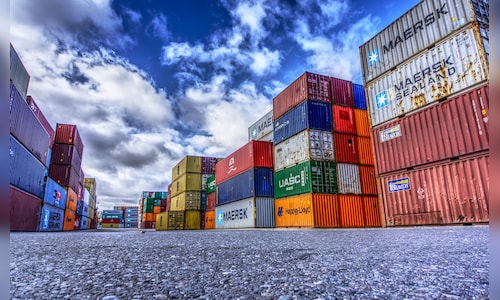
DPIIT has indicated that the state governments of Delhi and Karnataka have given in-principle approval to implement the CLPs. The guidelines and model plans are completely voluntary and may be adopted by other states as well. While road logistics are often restricted during certain times of the day in places like Delhi to avoid congestion, the DPIIT expects bypass expressways around the city to facilitate policy implementation.
In early 2022, DPIIT identified Delhi and Bengaluru as the two metropolitan cities for preparing Model CLPs. Under the Indo-German technical cooperation, Deutsche Gesellschaft für Internationale Zusammenarbeit (GIZ)’s Green Freight Project supported the relevant state authorities in preparing the Model CLPs, adopting international best practices.
From the experiences gained in preparing the CLPs for Delhi and Bengaluru, the suggestive “Guidelines for Preparing City Logistics Plans for Indian Cities” were compiled. These guidelines aim to enable all states and city authorities in India to create a City Logistics Plan (CLP) for efficient freight and logistics movement within their cities.
The initiative supports the government’s agenda on Ease of Doing Business (EoDB) and aims to fulfil India’s ambition of achieving carbon neutrality by 2070. The guidelines are also intended to assist practitioners in cities and states in making city logistics ecosystems efficient and sustainable.
The guidelines provide a framework for cities to tailor their vision, objectives, and indicators to specific local needs and unique city characteristics. This involves collecting relevant data, analysing freight distribution, and choosing appropriate infrastructure, policy measures, and services in collaboration with other relevant actors and stakeholders.
Also read: Exclusive | India’s Road Ahead: Policymakers discuss growth, inflation & investments
The guidelines are designed to be a living document that will continue to evolve by incorporating feedback and input from stakeholders.
In 2022, India launched the National Logistics Policy, which includes support for the development of city-level logistics plans. This initiative aims to reduce logistics costs and improve the efficiency and sustainability of urban freight transport.
The DPIIT has identified first/last-mile freight movement in cities as a significant contributor to high logistics costs in India’s supply chains. Policymakers have traditionally treated city logistics as a problem area, with solutions often driven by ad-hoc planning.
This situation is attributed to competition for road space, as city transport networks and infrastructure are shared by both passenger and freight traffic. Comprehensive Mobility Plans (CMP) primarily address issues related to passenger movement, with limited emphasis on urban freight and logistics, which are predominantly controlled and operated by private interests.
Several countries have adopted city logistics plans to improve the efficiency and sustainability of urban freight transport. The DPIIT has cited Japan as a pioneer in city logistics, implementing consolidation centres and other innovative solutions to manage freight effectively in densely populated urban areas.
Many European countries, including Germany, France, and the Netherlands, have developed comprehensive city logistics plans focusing on emission reduction, traffic flow improvement, and integration of logistics with urban mobility plans.
Brazilian cities like São Paulo and Rio de Janeiro have also begun implementing city logistics plans to address congestion and pollution issues.
These countries leverage CLPs to create more sustainable and efficient urban environments, addressing the unique challenges posed by urban freight transport.
Also read: India has to invest $120 billion to meet steel expansion target of 300 MT by 2030: Steel secretary



